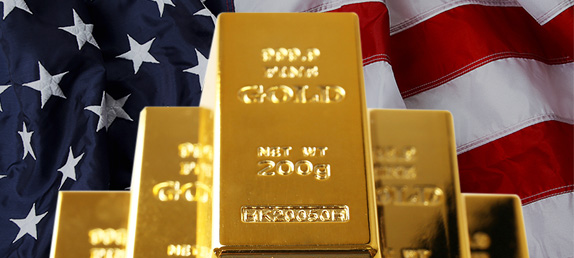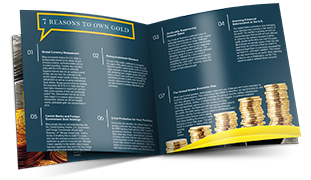
According to Marc Faber, renowned economist and the man behind the recent ‘Gloom, Boom and Doom’ op-ed, privately owned gold will shortly be acquisitioned by the government, despite the fact that he himself is still opting to buy gold.
In an interview with Chiefsworld, he said that playing the commodity space is safer when one owns gold in its physical form. He says, “If I were an American, I would store [gold] outside the US” because in the United States, there is a possibility that the government “will eventually take it away.”
He claims that, as in 1933, the government will purchase gold back because, sooner or later, the recession will deepen so much that the price of gold will ‘go ballistic’, forcing the government to take it back from the minority that holds it (as Faber points out, few people own physical gold). Faber claims that when the price of gold rapidly climbs, many people will be in favor of taking it back from ‘these rich people’, emphasizing that it has occurred before.
In the period between May 1, 1933, and May 1, 1974, the US government made it impossible for citizens to possess gold as insurance against the fluctuations suffered by paper money. At the same time, that paper money was no longer backed by a gold standard.
Central banks in other countries were able to keep exchanging the US dollars that they acquired – over the years, these became known as ‘euro-dollars’ – for physical gold. This was particularly common in 1971, following the devaluation of the American dollar and its fluctuation against the price of gold.
Faber asserts that he is not rushing to buy gold; instead, he slowly gathers it each month, under the belief that the market for gold is still operating in a phase of correction.
China’s economy, Faber says, has started to slow, and he asserts that this trend will continue and become more severe, potentially resulting in a crash. For this reason, he refrains from purchasing any commodity besides gold.
At the same time, Bob Janjuah of Nomura claims that governmental policies have artificially altered markets so significantly that the dangers of investment have become rife throughout the system.
Writing at Zero Hedge, Janjuah stated that he personally recommended investors hold their assets in ‘gold’, as well as high-quality non-financial sources of corporate credit, and non-financial blue-chip international equities with big caps. He emphasizes that policy makers have ‘rigged’ the international currency and bond markets to such a degree that he has no ‘meaningful insights’ to give, except for fears that the bubble may burst.
Meanwhile, traders in gold are exhibiting more bullish tendencies after the famous billionaire manager of multiple hedge funds, John Paulson, encouraged investors to purchase gold to protect themselves against the inflation that results from increased government expenditure.
Twelve out of the 22 investors who were questioned by Bloomberg anticipate a rise in prices within the week; 5 investors were undecided on the matter. On February 14, a filing by the SEC showed that Paulson & Co. is currently the largest investor in the SPDR’s Gold Trust (the most significant bullion-backed product traded on the exchange), holding a stake value of $2.9 billion.
The contract being traded most vigorously, Gold for April delivery, climbed by $10.60, roughly 0.6%, so that by Thursday the Comex Division of the NY Mercantile Exchange recorded its standing at $1,722.20 per troy ounce.


